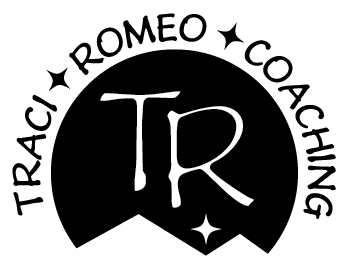Navigating Different Relationships
In a previous blog, we explored how relationships can enhance our lives if we allow them to. They act as mirrors, reflecting our behaviors and patterns back to us. Today, I want to delve into the relationships where our choices may feel limited, while emphasizing that we always have control over how we respond to others and various circumstances.
Understanding Family Dynamics
If you find yourself feeling left out by family members, such as siblings, it’s vital to muster the courage to share your feelings. Approach these discussions with kindness and clarity, ensuring your desire for connection comes from a safe space rather than a place of accusation. Remember, you cannot change others—only your reactions. If you feel excluded or mistreated, adjusting your thoughts about the situation can significantly improve your perspective.
It's easy to get wrapped up in the "shoulds" of family responsibilities—what they should do, what you should do, and what everyone should do. Reflect on how you are showing up in these relationships. Are you bringing love, acceptance, and compassion? Are you maintaining boundaries when they are being tested? When faced with family members who do not treat you as you wish, assess the situation with clarity. Are they behaving unexpectedly? If so, what changes can you make in your response? I once found myself in a relationship where I was often taken aback by someone else's actions. I had two choices: remain upset or alter my reactions. By choosing the latter, I found that the conflict diminished, leading to a more peaceful connection. Setting boundaries isn’t about changing others; it’s about transforming our own reactions that don’t serve us and adopting healthier behaviors, whether that means distancing ourselves, reducing communication, or letting go of negative thoughts.
Manifesting Meaningful Relationships
If you’re experiencing mixed signals while trying to attract a relationship, it may indicate that you are too focused on seeking external validation. Instead, channel your energy into enhancing your own well-being. By nurturing joy and confidence within yourself, you will naturally draw a partner who resonates with that positive energy. It's essential to prioritize your feelings and the energy you emit.
Rebuilding Trust Following Betrayal
Reestablishing trust after experiencing deceit is tough but achievable. While forgiveness is a necessary step, it’s equally important to set clear boundaries regarding what is unacceptable in your relationships. If you decide to give someone another chance, ensure your commitment to honesty is unwavering. Should trust be compromised again, having established boundaries will aid in managing disappointment and making difficult choices.
Healing from Family Trauma
Forgiving a parent for past traumas, particularly when they have not acknowledged their wrongs, demands self-compassion. Focus on healing your wounds before extending forgiveness. This process involves recognizing and confronting the shame associated with the trauma, which will ultimately allow you to open your heart to forgiveness over time. Envisioning a time when you were hurt, then having the resourced, mature version of yourself, step in and visually talk to that younger version of yourself, asking that child what they would want in that moment, then allowing the resourced version of yourself to give that to the child will allow the endured trauma to dissipate, and you will be left feeling supported and cared for.
Finding a Life Partner Later in Life
If you are older and feeling disheartened about being single, remember that many people discover meaningful relationships later in life. Concentrate on nurturing faith in your desires and enhancing your qualities as a partner. Take yourself out to a nice dinner or engage in an activity that brings you joy by yourself. If you are not willing to spend time by yourself, why would others want to spend time with you? Forge your friendship with yourself, and show up for yourself. By improving your inner well-being, you present yourself as a more appealing partner, decreasing the chances of attracting unsuitable individuals.
Managing Attachment Styles in Relationships
If you have an anxious attachment style, navigating a relationship with an avoidant partner can be particularly challenging. Understanding your attachment style and fostering a sense of internal safety is essential. Seek support from communities or practices that promote this safety. Recognize that your relationship can serve as a growth opportunity; discomfort may highlight areas that require healing. By healing past hurts, you will feel at ease in asking for what you desire, and will be more able to walk away when your needs are not meet.
Embracing Change and Personal Growth
Ultimately, personal healing in relationships begins with you. As you grow, you may come to realize that some connections no longer serve you. This realization opens the door to seeking new, healthier relationships. Allow yourself to shift your beliefs and patterns that impede your ability to attract the connections you desire.
By focusing on your personal growth and healing, you can transform your relationships and invite love and connections that align with your authentic self. Now is your time to have the relationship with yourself that you have desired to have with another.
